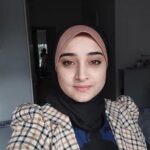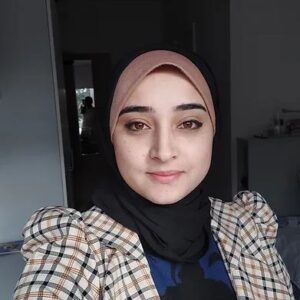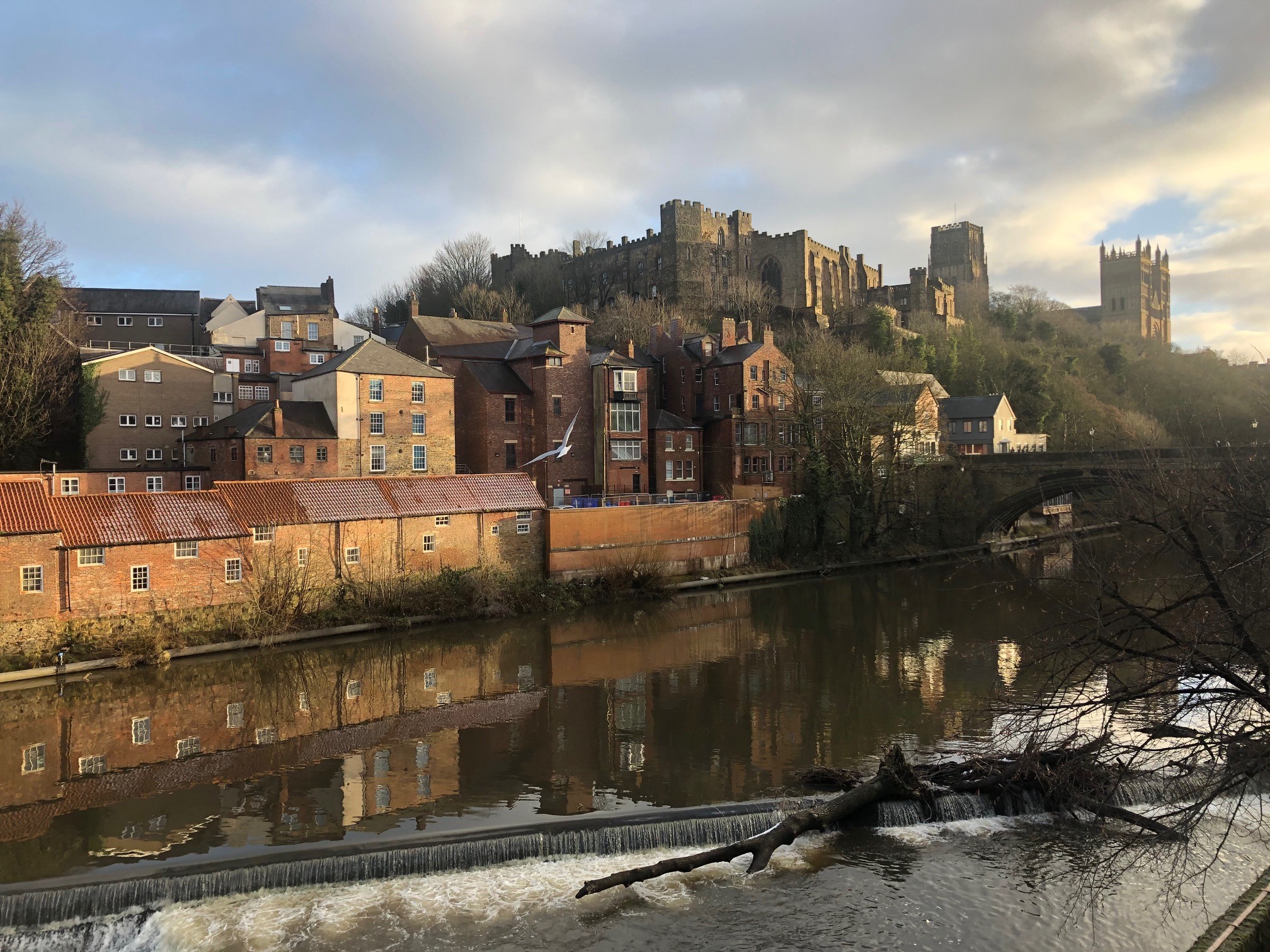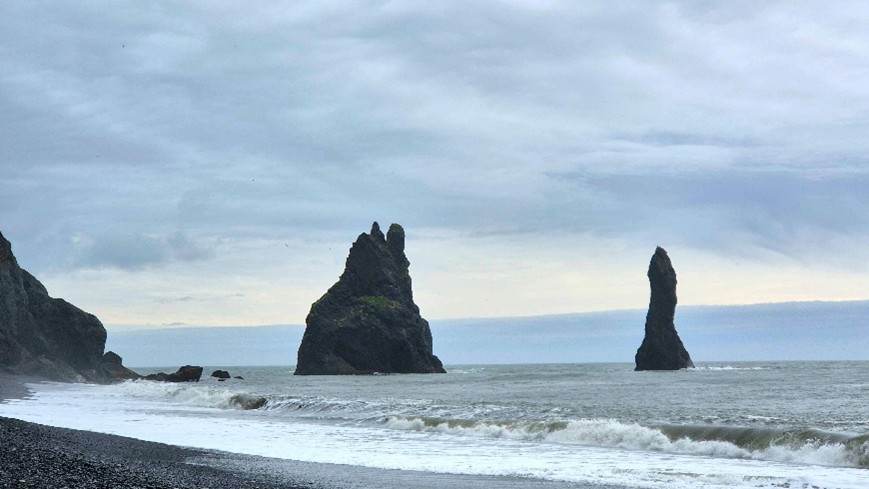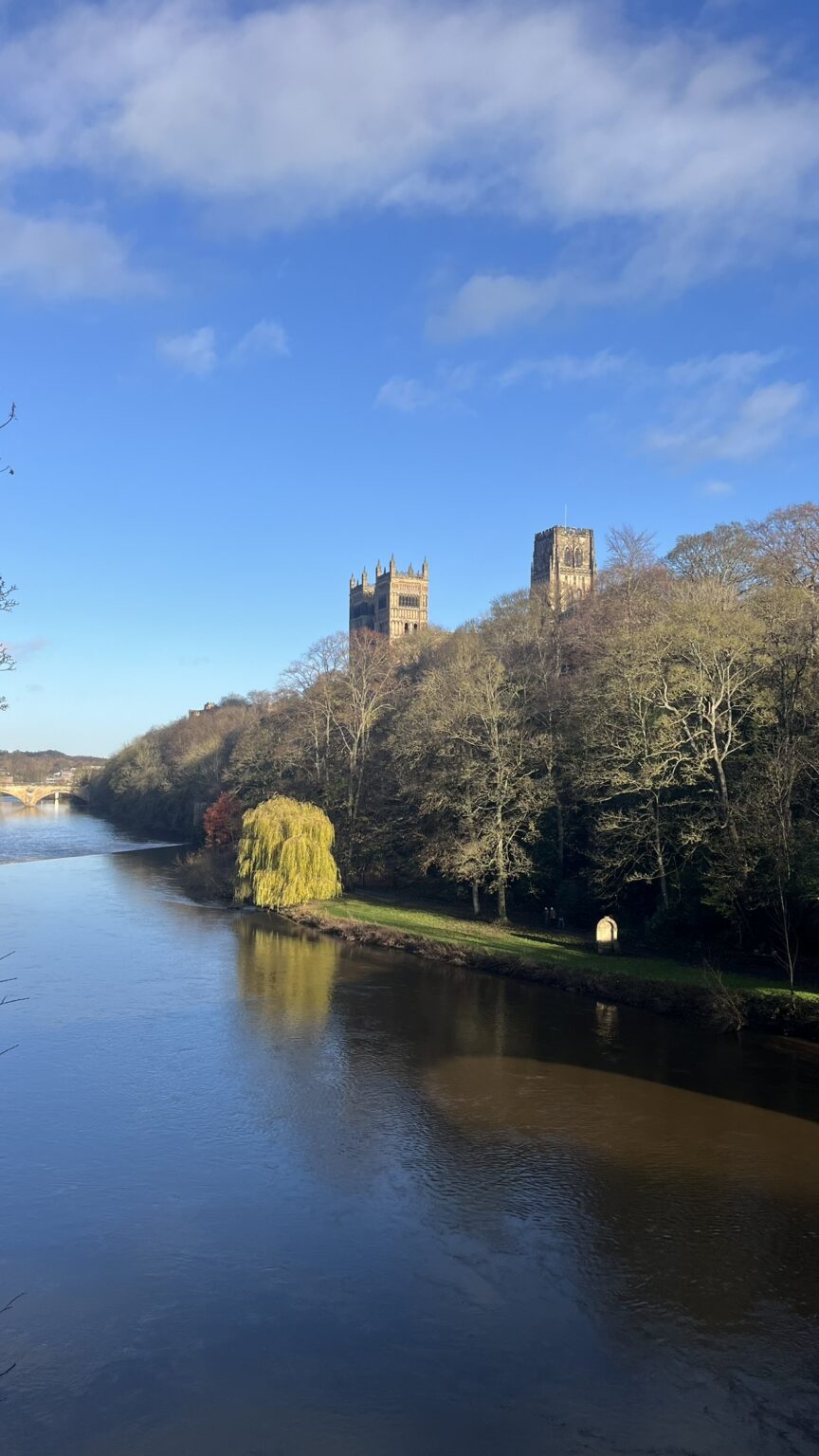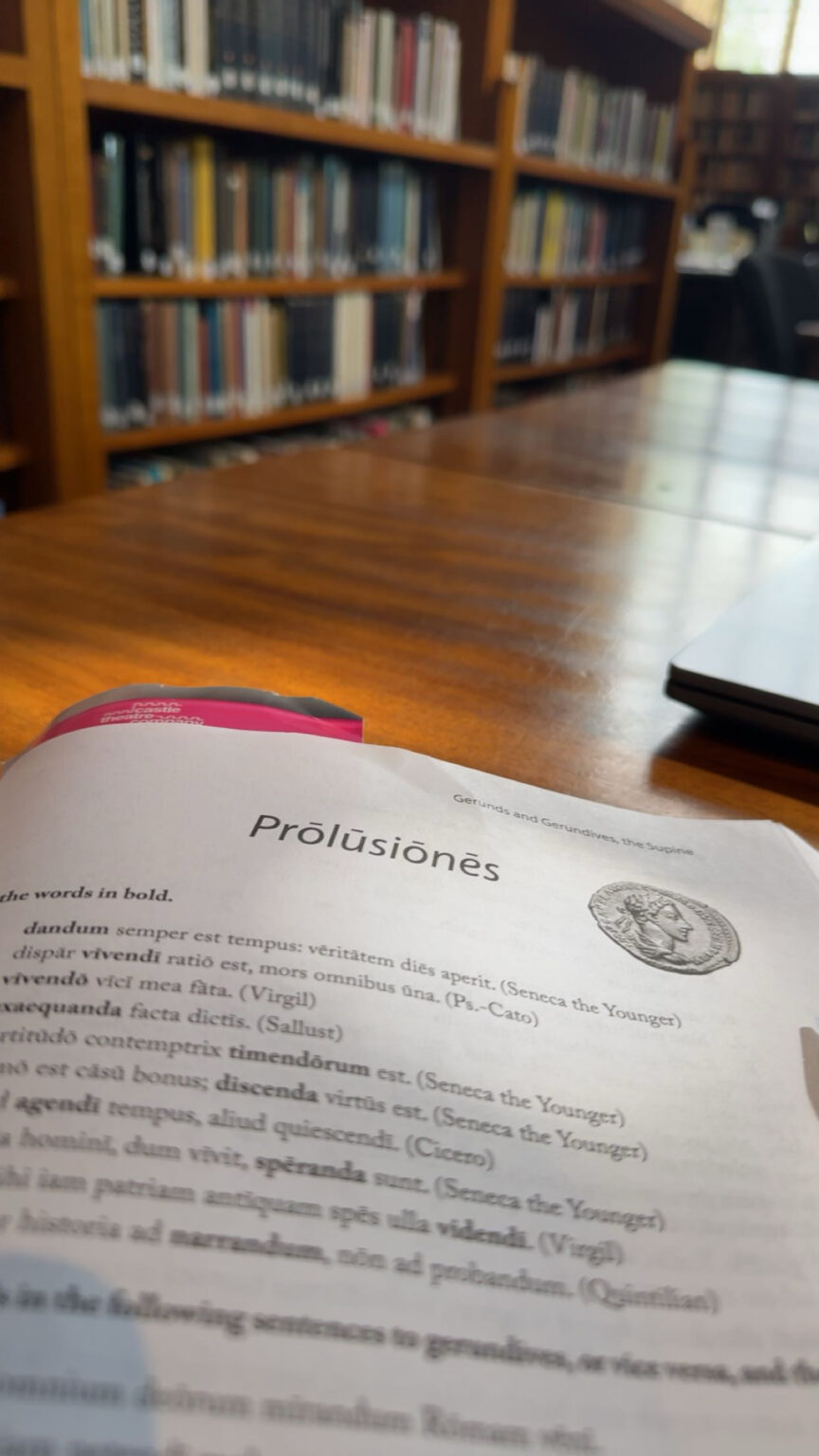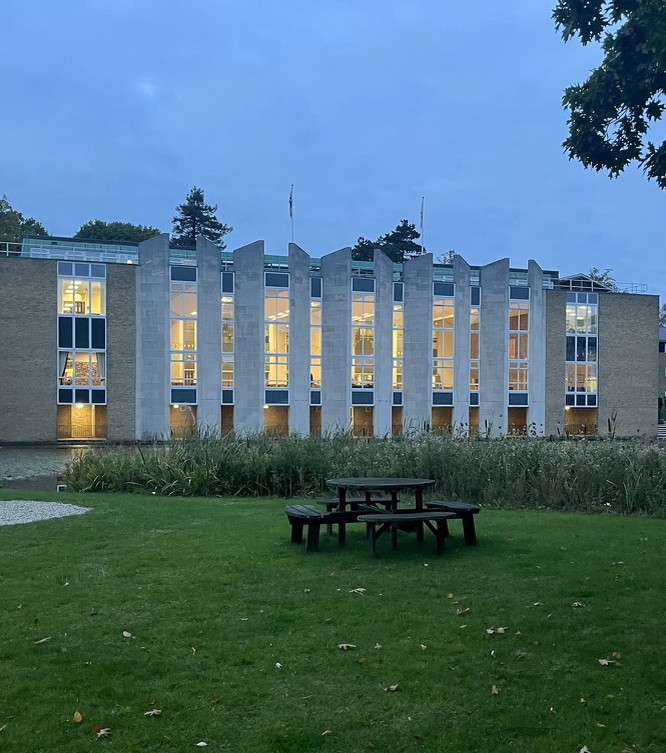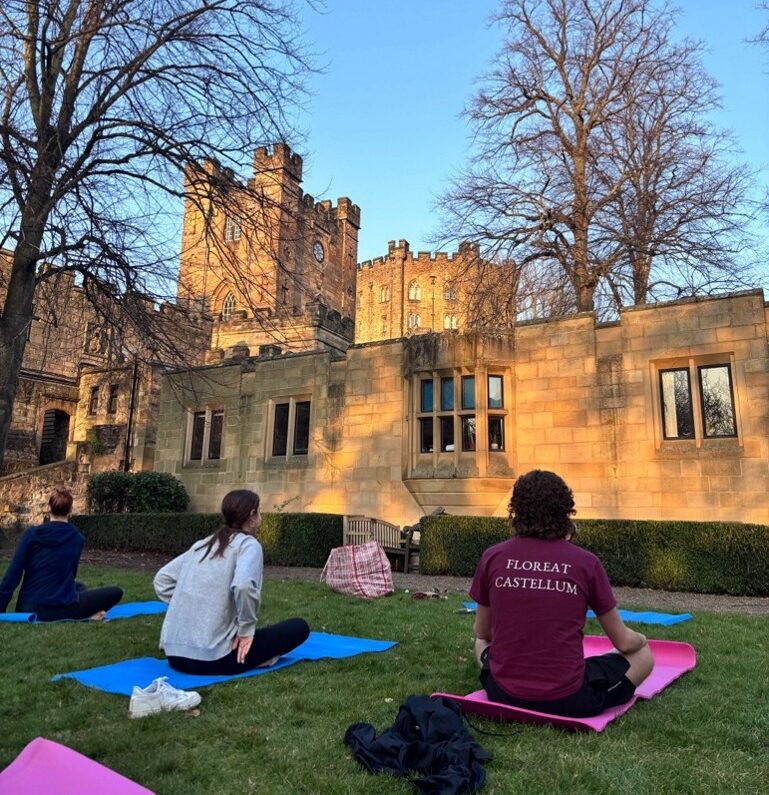What brought you to Durham to do this programme?
I am Dalya Saleh. I worked as an English teacher in Gaza City, Palestine, for six years. During this time, I thoroughly enjoyed collaborating with students, parents, and colleagues to create interactive lessons and projects that enhanced my students’ learning experience. Despite my love for teaching, I made a significant life decision to pursue a Master’s degree at Durham University. This choice involved leaving behind my family and career, but it is driven by my eagerness to contribute to educational research in my home country.
My goal is to broaden my knowledge and network by closely collaborating with experts in the field of education. I believe that by undertaking the MA in Intercultural Communication and Education at Durham, I will gain valuable insights and skills that will empower me to make a meaningful impact in Palestinian education. I am committed to leveraging this academic opportunity to bring positive change to my community and foster connections between educational professionals worldwide.
What made you choose to do an MA in this subject?
I was inspired by the course description and topics I found on the department page. I aimed to gain a deeper understanding of the materials and contribute to the knowledge in the field. I believe that understanding the relations between nations, identity, and intercultural communication is crucial for creating a peaceful world. During the course, I reflected on readings about language, power relations, stereotyping, intercultural communication competence, globalization, multiple identities, race, language, and concepts of mobility and migration.
I developed an understanding of how identity is shaped at micro, meso, and macro levels, involving fluidity and intersection between individual, societal, and national levels. I explored the argumentation of how identity transfers between contexts and undergoes changes over time and within new intercultural encounters.
My studies also focused on the concerns that globalization has brought to the world, including the possible ‘hegemonic’ imposition of values associated with certain popular cultures. This can suppress the voices of other people and increase their fear, doubt, and suspicion. Ferier’s intercultural dialogue inspired me with his ideas about humanizing education. I learned that knowledge should not be framed and predetermined; learners must be given the freedom to question and critically reflect on information and their experiences.
Why did you choose Durham?
I chose Durham because I know some very successful people in Palestine who attended Durham University in the past and are now working in high positions. Durham is recognized as one of the top universities in the UK. I decided to join the ICE course because it aligns with my background in teaching and adds a more interesting aspect, which is intercultural communication. This course allows me to understand the relationship between nations, education, language, identity, and power. Delving deeply into these elements provides me with a more profound knowledge of how education operates in different regions.
In addition, Durham University places considerable emphasis on students’ social lives through the activities they organize and the various societies they offer. I decided to join the table tennis society, which not only allowed me to enjoy the sport but also rekindled memories of my childhood. During my time as a teacher, I often neglected a part of my social life due to time constraints. However, being at Durham has been instrumental in helping me refresh my energy and reconnect with this aspect of my life.Moreover, the lush green spaces and the daily walks to the library and classes contribute significantly to rejuvenating my energy. These moments provide valuable time for reflection on my life and allow me to plan what else I need to achieve in the future. The university’s environment, both socially and physically, has played a vital role in enhancing my overall experience and well-being.
How is the course delivered?
The course delivery involves a well-structured and comprehensive approach. Prior to the main sessions, our participation in reading support groups, guided by doctoral students, enhances our preparation for the upcoming 3-hour seminars. These weekly one-hour sessions not only provide valuable insights but also offer a platform to discuss any concerns or difficulties we may have, fostering a sense of confidence for active participation during classroom discussions.
The course itself is a dynamic blend of lectures, seminars, and workshops, incorporating multimedia elements such as videos to enrich our learning experience. Additionally, the department frequently organizes seminars featuring experts, facilitating a connection between theoretical knowledge and its practical applications in research.
The curriculum requires us to engage with essential and additional readings, along with PowerPoint presentations, to ensure effective participation. The early distribution of articles for submission at the beginning of the term provides a clear roadmap, contributing to a more coherent and goal-oriented learning experience.
Formal assessment includes group presentations, encouraging collaborative efforts, and fostering diverse perspectives. In-class discussions are a central component, promoting extensive engagement with the course material. Overall, the course delivery method is designed to be inclusive, interactive, and goal-focused, providing a well-rounded educational experience.
How are you finding studying at Durham?
Studying the ICE course at Durham has been one of the best decisions I have ever made. The course provides ample space for contemplation and reflection on knowledge. We are consistently encouraged to think critically about our readings and question them, which is particularly engaging for me. While I had heard about the importance of questioning knowledge, here I get to practice it in nearly every lecture. Our professors prepare us to be critical thinkers and reflective learners, contributing to an enriching academic experience. I also have the opportunity to explore a wide range of research from unfamiliar regions and scholars, including an article in the Intercultural Communication course written collaboratively with one of my professors in Gaza. This inclusivity enhances my sense of belonging to the course, and I hope to witness more collaborative efforts between Durham professors and scholars in the Arab and Muslim world for a more peaceful and understanding global community.
During the first term, I participated in an online conference hosted by the University Of Royal Road in Canada and the IBE (Imagining Better Education) conference at the School of Education at Durham University. These opportunities were brought to my attention through emails from our professors, who keep us updated with new chances for engagement. In these conferences, I discussed the challenges and practices of intercultural communication in occupied contexts, sharing practical examples from classrooms and engaging in fruitful discussions and Q&A sessions.
Participating in these conferences allowed me to network with new students and experts, fostering further knowledge exchange and support. Serving as the students’ representative for my course was among the most rewarding experiences. I participated in meetings with staff, providing support to fellow students and gathering feedback for continuous improvement.
The university education hub serves as a valuable resource, where we regularly attend meetings and seminars with experts in the intercultural communication field, both from the UK and abroad. Last term, the department welcomed a professor from another university who discussed their intercultural communication course and other programs. It is truly delightful to traverse different contexts and countries while sitting inside the classroom.
Where do you hope the MA ICE programme will take you?
After getting my MA degree, I see myself continuing to explore the topics I learned in the course. This means doing more research on intercultural communication, maybe with a PhD then a special fellowship. I might also prepare for a job in academia, where I can teach and continue my research, helping others learn about intercultural understanding
Therefore, my MA is a starting point for a path where I want to keep studying and learning. It fits into my bigger goal of making a positive impact on how people from different backgrounds connect, especially in tough situations. This journey is about bringing people together through both research and teaching, making the world a more connected and understanding place.
What would you say to anyone considering the MA ICE programme
To anyone considering the MA ICE programme, I wholeheartedly encourage you to pursue this enriching academic journey at Durham University. The essence lies in your motivation and willingness to dedicate ample time and effort to maximize the experience you hope to gain. Additionally, I urge you to not hesitate in seeking assistance from your professors whenever you encounter challenges, as they are there to support and guide you along the way.Participate actively in seminars and discussions, as they offer invaluable opportunities for learning and engagement. Embrace the idea of stepping out of your comfort zone and taking risks, as this is where true growth and development occur. Be proactive and always be ready to extend a helping hand to others, as this fosters a collaborative environment where everyone benefits. By embodying these principles, you will not only acquire essential skills and experiences but also contribute to the vibrant academic community at Durham University.
Discover more
Feeling inspired? Take a look at our School of Education department pages.
